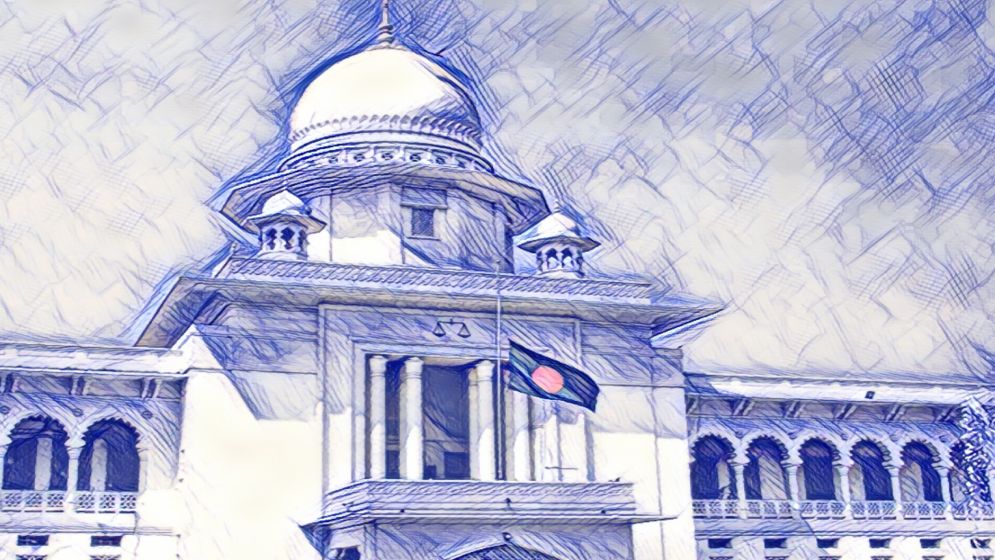Supreme Court affirms removal of judges via Supreme Judicial Council in a landmark verdict

In a landmark decision, Bangladesh's highest court has fully reinstated Article 96 of the Constitution, empowering the Supreme Judicial Council to remove judges for incompetence or misconduct.
This ruling comes as the Appellate Division disposed of the government's review petition challenging an earlier verdict that declared the 16th Amendment to the Constitution invalid.
A six-member full bench of the Appellate Division, headed by Chief Justice Syed Refat Ahmed, delivered the verdict on Sunday amidst a full court session.
The 16th Amendment had sought to grant Parliament the power to remove Supreme Court judges, but the court reaffirmed the Supreme Judicial Council's authority in this matter.
The Supreme Judicial Council, comprising the Chief Justice and the next two senior judges, can now investigate allegations of misconduct or incapacity against judges and recommend appropriate action to the President.
During the proceedings, Attorney General Md. Asaduzzaman represented the state, while lawyer Monzil Morshed appeared for the petitioners who had originally challenged the 16th Amendment.
The Appellate Division's ruling also saw the participation of senior lawyer Md. Ruhul Kuddus, who appeared before the court with its permission.
This decision, say the analysts, strengthens judicial independence and accountability in Bangladesh.
Following the verdict, Kuddus clarified to reporters that provisions 2 to 8 of Article 96, which were annulled by the controversial 16th Amendment, have been fully restored.
This reinstatement empowers the Supreme Judicial Council to investigate and take action against judges for incompetence or misconduct.
BNP's legal affairs secretary, Kaiser Kamal, hailed the court's decision as a historic victory for judicial independence.
He emphasized the importance of a strong and independent judiciary in upholding the rule of law and safeguarding democracy.
Why was the 16th amendment controversial?
The 16th Amendment, passed by the Awami League government in 2014, sought to give Parliament the authority to remove Supreme Court judges.
This move was widely criticized for undermining the separation of powers and jeopardizing judicial independence.
The amendment was challenged in the High Court by nine lawyers in a writ petition. In 2016, a special High Court bench ruled the amendment unconstitutional, a decision now upheld by the Appellate Division.
The government appealed the High Court's decision in January 2017. However, in a landmark ruling on July 3rd, 2017, a seven-member Appellate Division bench led by then Chief Justice Surendra Kumar Sinha (SK Sinha) unanimously upheld the High Court's verdict, effectively striking down the 16th Amendment.
The full judgment, published on August 1st, 2017, contained Justice Sinha's observations on a wide range of issues, including democracy, governance, and judicial independence.
These observations sparked a backlash from the Awami League government, with ministers and party leaders demanding Justice Sinha's resignation.
Amidst the controversy, Justice Sinha took leave and traveled abroad. While officially attributed to health reasons, he later revealed to the media that he felt compelled to leave due to the intense pressure and criticism from the ruling party.
He eventually resigned from his position while abroad and did not return to Bangladesh.
Despite the Appellate Division's definitive
ruling, the government filed a petition seeking a review of the decision on
December 24th, 2017.
This petition ultimately led to the recent verdict by the Appellate Division, reaffirming the Supreme Judicial Council's authority to remove judges.
—-

